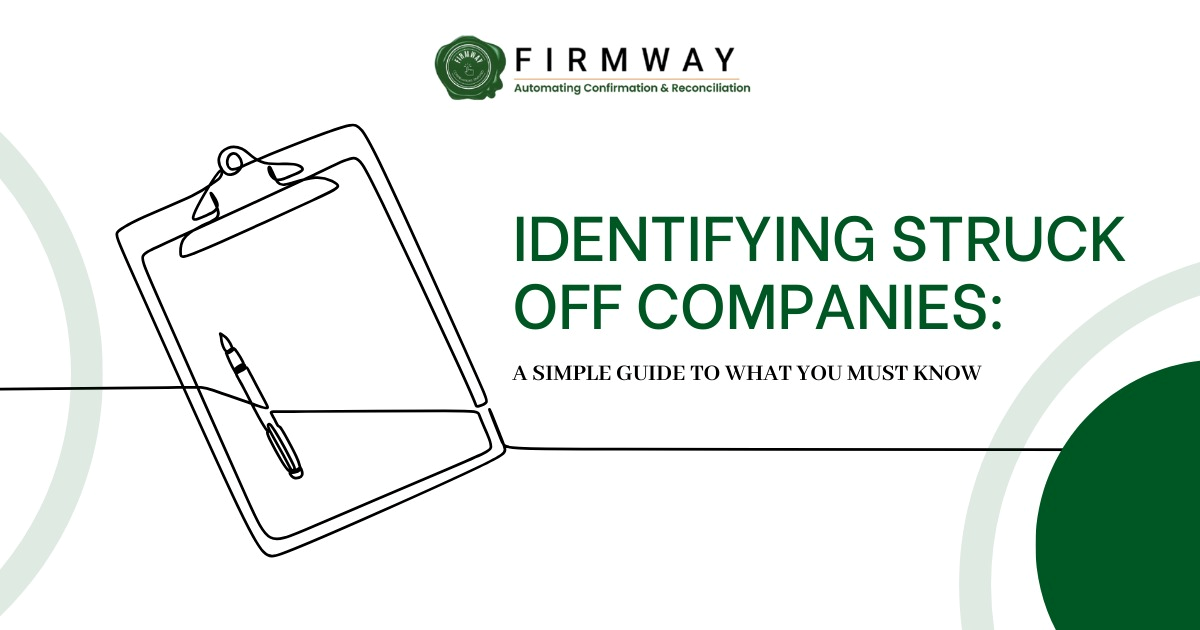How to Respond to the First Gazette Notice for Compulsory Strike Off
How to Respond to the First Gazette Notice for Compulsory Strike Off
Blog Article
A Comprehensive Overview to the Compulsory Strike Off Procedure in Corporate Governance
The compulsory strike off treatment, an important aspect in business governance, offers as a device to implement conformity and keep the stability of the service atmosphere. As services develop and scenarios modification, the demand to strike off a firm might occur for numerous factors.
Reasons for Compulsory Strike Off
What conditions lead to the requirement of a mandatory strike off in company governance? There are numerous key reasons that might prompt the initiation of a compulsory strike off procedure for a firm. One typical scenario is when a company stops working to abide by its statutory obligations, such as sending annual returns or monetary declarations to the relevant authorities. Non-compliance with governing demands can increase issues about the firm's procedures and financial health and wellness, causing the choice to strike off the firm from the register.
In addition, business that have actually ceased trading or are no more performing any kind of service tasks may also encounter required strike off. This could be due to insolvency, mergings, or just a choice to end up the business. In such situations, maintaining the business on the register would certainly offer no purpose and could possibly create confusion amongst stakeholders.
Inevitably, the need of a compulsory strike off in business governance occurs when a business is no much longer operating according to the law or has ended up being obsolete, necessitating its elimination from the authorities records.
Lawful Implications and Risks
Offered the scenarios that motivate a mandatory strike off in corporate governance, it is essential to recognize the lawful ramifications and threats linked with such activities. When a business is struck off the main register, it disappears as a legal entity. This can have severe effects for financial institutions, directors, and shareholders. Supervisors might deal with individual responsibility for business financial obligations sustained after the dissolution, exposing their properties to possible seizure. Shareholders shed their financial investment in the company, and financial institutions might discover it challenging to recoup debts owed to them.
In addition, there are lawful effects for people entailed in the administration of a business that has been forcibly struck off. They might be disqualified from functioning as supervisors in the future, face penalties, and even imprisonment if misbehavior or fraudulent activities are discovered. Additionally, the reputational damage from an obligatory strike off can have enduring effects on individuals and their ability to take part in future organization endeavors. Recognizing these legal implications and threats is crucial for all stakeholders included in the corporate governance procedure to make certain and browse possible mistakes conformity with the law.
Action In the Strike Off Refine
Starting the required strike off process in business administration includes a collection of proposed actions described by governing authorities. The primary step usually calls for the firm to submit an official application or notice to the relevant government agency or registrar signaling its intent to be struck off the main register. Ultimately, the business is commonly required to resolve any outstanding responsibilities, financial debts, or taxes to make certain compliance with governing needs.
Once the preliminary documentation is submitted and monetary responsibilities are met, the regulatory body will certainly publish a notification in the official gazette or a comparable publication to educate stakeholders regarding the upcoming strike off. This notice functions as a final chance for any type of interested parties to increase arguments or existing legitimate reasons the firm need to not be liquified.
Adhering to the publication of the notice, the regulative authority will certainly wage the strike off process if no considerable arguments or challenges arise. The company will after that be formally liquified, and its name will be removed from the register, successfully marking the conclusion of the obligatory strike off procedure in business governance.
Documents Needed for Strike Off
In conformity with governing guidelines, particular paperwork must see here now be given to promote the strike off procedure in corporate administration. The called for papers usually include a formal application for strike off, which needs to be finished accurately and submitted to the relevant regulatory authority. Additionally, financial declarations, such as the company's most current annual report, need to be included to ensure that all financial commitments have actually been worked out before starting the strike off procedure. A declaration of solvency or a declaration verifying that the firm has no exceptional obligations is typically mandated to demonstrate that the entity can be liquified without triggering harm to its lenders. Any kind of required authorizations from shareholders or board participants must be documented and enclosed with the application. It is vital to make certain that all the requisite paperwork is carefully prepared and sent in conformity with the suggested guidelines to expedite the strike off procedure properly. Failure to supply the necessary documentation may cause delays or complications in the dissolution of the business.
Post-Strike Off Obligations and Factors To Consider

Another important post-strike off factor to consider is the potential for the company to be recovered to the register. If there is a demand to restore the company after strike off, the procedure for reconstruction should be meticulously complied with to make certain conformity with lawful requirements. Failing to address post-strike off commitments can result in prospective legal effects for directors and investors. As a result, it is essential to vigilantly handle these responsibilities to preserve great company governance methods.
Verdict

There are numerous key factors that see page might trigger the initiation of a compulsory strike off procedure for a firm. Non-compliance with governing needs can elevate concerns regarding the firm's operations and financial wellness, leading to the choice to strike off the company from the register.
In addition, companies that have actually stopped trading or are no much longer bring out any type of organization tasks may also face compulsory strike off. If there is a requirement to revitalize the company after strike off, the process for restoration should be thoroughly followed to make certain compliance with legal requirements.In final thought, the compulsory strike off treatment in corporate governance offers as an essential device to eliminate obsolete business from the register.
Report this page